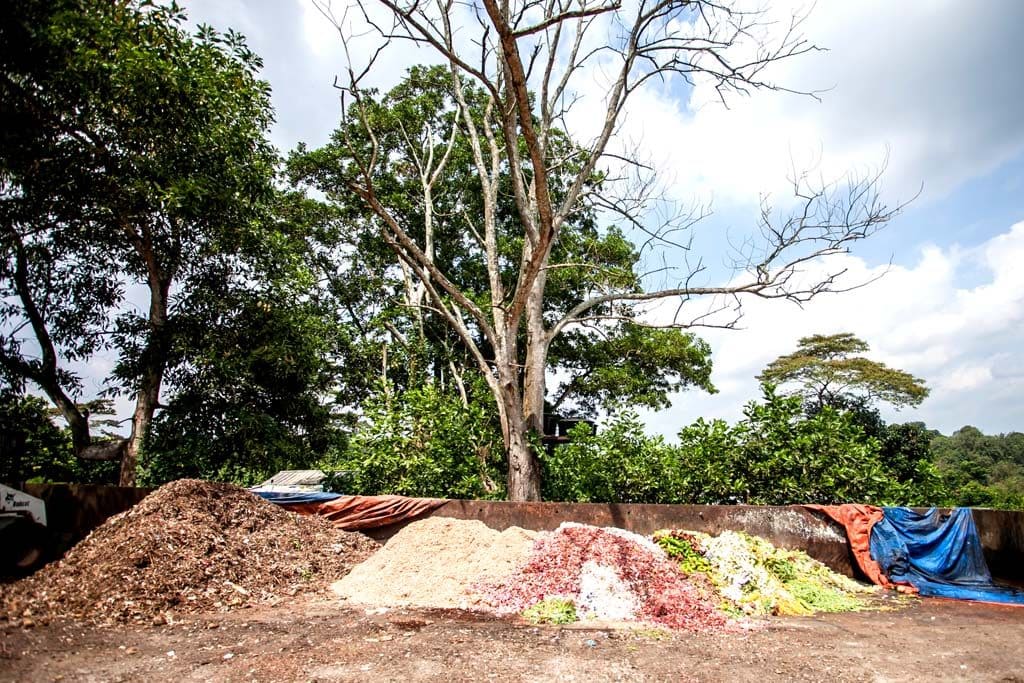
A promising solution proven to be successful by FOLO farm is composting them. for 365 days a year (sometimes 366 days), Instead of complaining about the recycling and waste management work performed by the government, FOLO farm has decided to take action. They forked out their money to invest in trucks, tools and equipments, and even composting farm; they committed time and effort to pick up the waste from business owners and composting them for over 8 months. Nothing from the waste was actually “wasted”, not even the liquid.
Over the period of time, the business owners and community started to realise that FOLO is actually helping the society to solve major problem. More and more awareness is created in our society. Everyday without fail, they helped to convert at least 3 tons of waste into rich fertiliser instead of throwing / burning them. Vegetables in the farm growing stronger and even developed “antibody” to fight against pests. Ultimately, they have also achieved their vision: to grow healthy vegetables and feed their loved ones.
As educator, we have learnt a lot from FOLO farm just from composting itself. Recycling process would be more effective and make more sense when our children could understand the reason rather than imposing recycling rules or instructions for them to follow. We hope to bring a change in our society through education by instilling the right value and mindset to our children ever since they are young.
- FOLO farmer will drive a truck every day early in the morning to collect food waste for composting.
- First stop: Renaissance Hotel to collect food waste: food from their restaurants, functions, buffets, etc. 14 bins of food waste collected on average.
- Pick up fish from Malacca straits. According to Will, fish is good for composting as they are rich in different variety of microorganism
- Next stop: to pick up “rejected” vegetables.
- pick up spring onion and garlics
- garbage such as food and plant waste is mixed with sawdust over a period of several months convert it into a rich humus.
- liquid from food waste is collected and produce liquid composting. After a few months old, the liquid composting smells like wine!
